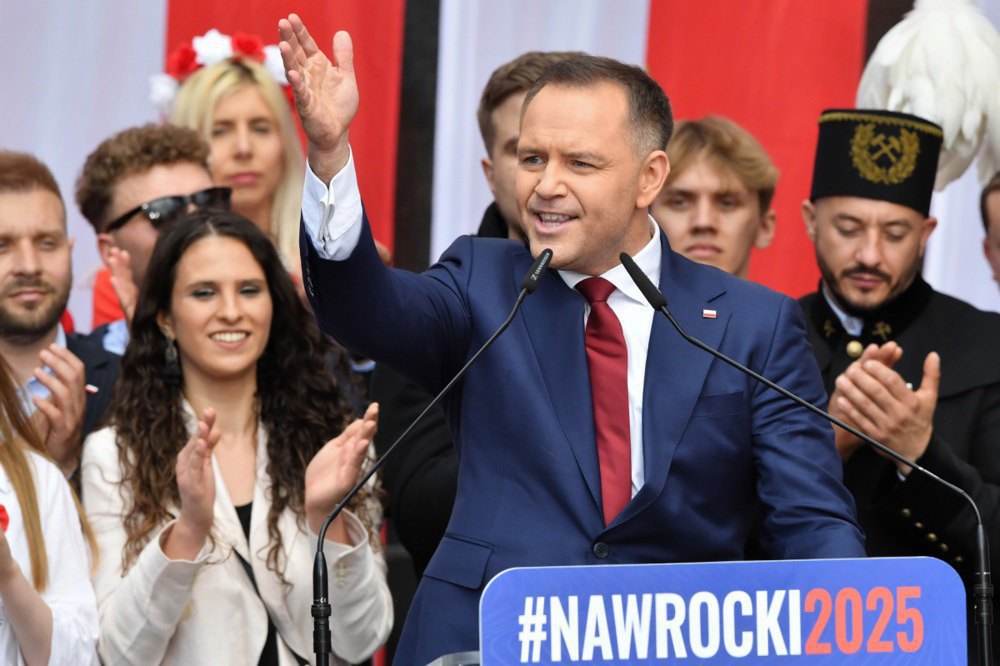
Karol Nawrocki’s victory in the Polish presidential election not only suggests a potential resurgence of Eurosceptic forces, but also opens a new – and significantly more complicated – chapter in Warsaw’s relations with Brussels, Berlin and, crucially, Kyiv. While Poland becomes the third neighbouring state to elect a political leader with rhetoric unfavourable to Ukraine, it would be premature and inaccurate to draw direct parallels between Nawrocki and figures such as Viktor Orbán or Robert Fico.
The results of the election, which brought to power a candidate backed by the right-wing opposition Law and Justice (PiS) party, signal a time of testing. In the first round, candidates representing right-wing and far-right Eurosceptic groups collectively secured more than 51% of the vote. Since 2005, Poland’s political landscape has been defined by a near-even split between conservative and liberal factions, with no candidate winning more than 55% of the vote.
Yet this election stands apart. Candidates from far-right parties – Sławomir Mentzen, Grzegorz Braun and Marek Jakubiak –garnered a combined total of 22%. Of these, Sławomir Mentzen emerged as the decisive force in the first round. Both candidates who advanced to the second round – Karol Nawrocki and Rafał Trzaskowski – publicly acquiesced to Mentzen’s political demands during a live broadcast on his YouTube channel in an effort to secure his endorsement.
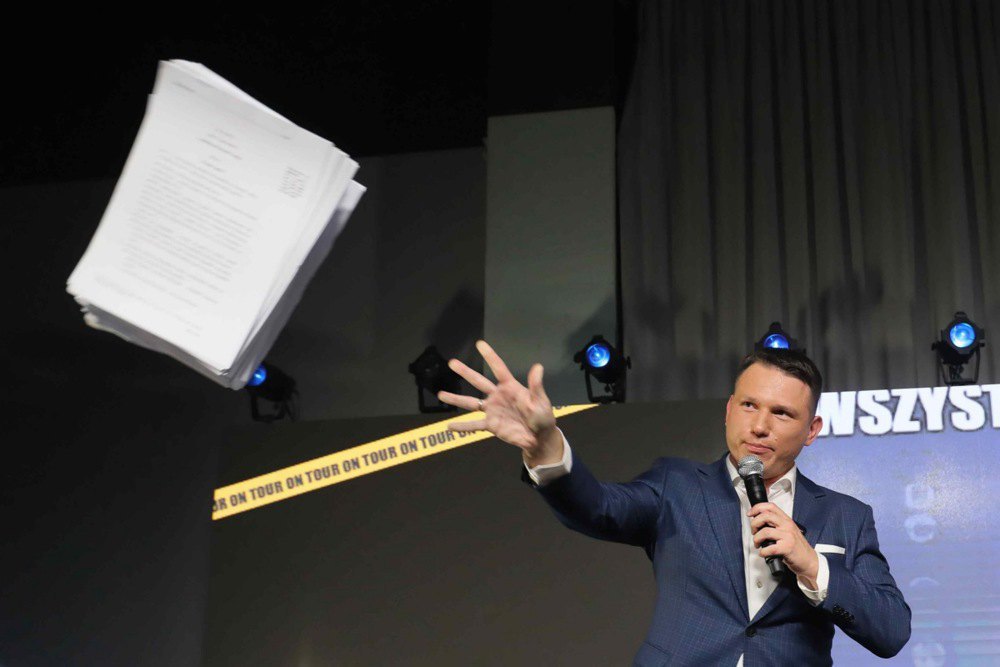
The outcome of the Polish elections reflects a broader trend across the European Union, where there is growing support for right-wing populist parties – as evidenced in Hungary, Slovakia, Romania and the Czech Republic. These political forces typically present themselves as guardians of national sovereignty and historical identity, which often results in friction with neighbouring states.
The domestic political landscape in Poland following these elections is set to remain tense. The president and the prime minister now represent opposing political camps – Nawrocki from Law and Justice (PiS) and Donald Tusk from Civic Platform – creating the conditions for ongoing confrontation. In this campaign, the PiS candidate employed rhetoric markedly more radical than in previous elections, including in relation to Ukraine. This shift can be attributed not only to a desire to attract far-right voters but also to a strategic effort to draw a sharper contrast with Tusk, who has been criticised for failing to resolve key economic issues.
Recent history reinforces this expectation. When Andrzej Duda, another PiS-backed president, held office, he frequently vetoed initiatives from Tusk’s government. A repetition of this political stalemate now seems highly plausible. For Ukraine, the evolution of the working relationship between the president and the parliament will be of vital importance. The newly elected President Nawrocki could maintain a state of quiet confrontation – or he might choose to escalate the situation, potentially leading to the dissolution of the Sejm and early parliamentary elections.
Should such a scenario unfold – particularly if it results in a coalition between PiS and more radical right-wing parties such as Confederation – it could trigger a profound shift in Warsaw’s political direction. Prime Minister Donald Tusk has announced that the parliament will hold a vote of confidence in his government on 11 June, and he has expressed his willingness to cooperate with the new president. The next move, however, lies with PiS and Karol Nawrocki.
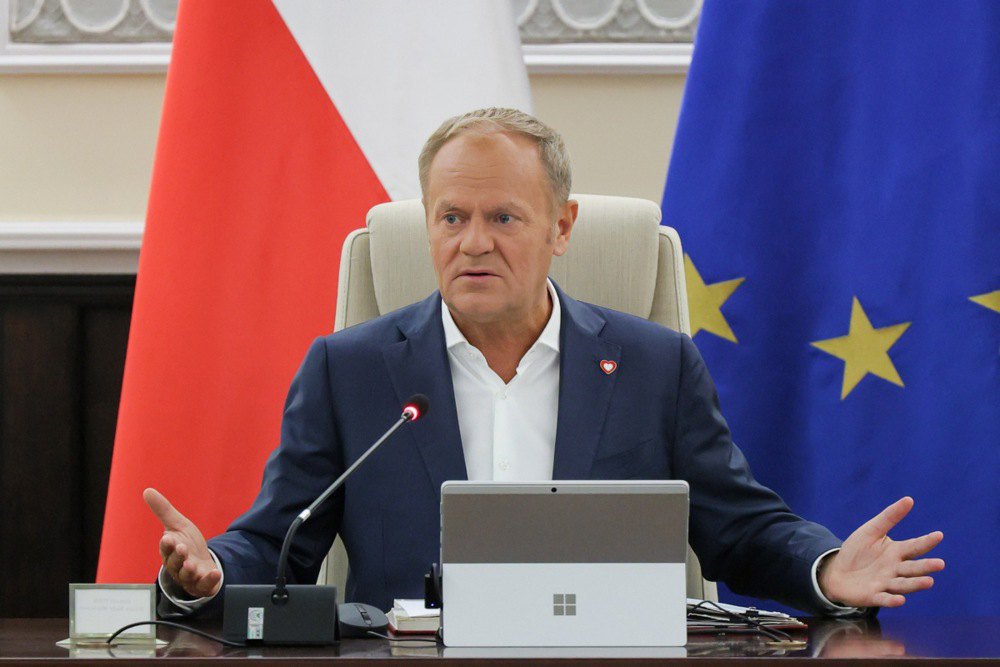
For Ukraine, the prospect of a political realignment – especially one involving a PiS–Confederation coalition – carries potentially severe implications. Although Nawrocki has stated that “Poland’s strategic interest is to push the threat of neo-imperial, post-communist Russia away from Poles as far as possible” and that “peace in Ukraine should be lasting and just”, his other actions and public statements raise serious concerns.
In particular, Nawrocki’s decision to sign a declaration reflecting the demands of Confederation leader Sławomir Mentzen – including a pledge to block Ukraine’s accession to NATO and a refusal to deploy Polish troops to Ukraine – is deeply troubling. Furthermore, in a letter to Grzegorz Braun, a representative of the far-right Confederation of the Polish Crown, Nawrocki – while omitting the most contentious issues, such as halting military assistance – nevertheless pledged to combat “Bandera’s ideology” and the “Ukrainisation of Poland”.
These statements – aimed at mobilising the nationalist electorate – demonstrate the new president’s readiness to actively exploit historical issues for political ends. References to Volyn during the election campaign may be viewed as a strategic manoeuvre to attract voters from the Confederation, and likely played a decisive role in securing additional support for Nawrocki.
Nevertheless, the subject of the Volyn tragedy – which Nawrocki, a professional historian and former head of the Institute of National Remembrance, considers fundamental – appears set to remain a recurring theme. In response to President Zelenskyy’s message of congratulations, the newly elected Polish president reaffirmed his commitment to continued partnership between the two countries, particularly in the context of the Russian–Ukrainian war. However, he twice emphasised the importance of “resolving urgent historical issues” and “settling the unresolved past”. Notably, Ukraine this year permitted the resumption of prospecting for remains on its territory – a move Nawrocki may well tout as a political success at home.
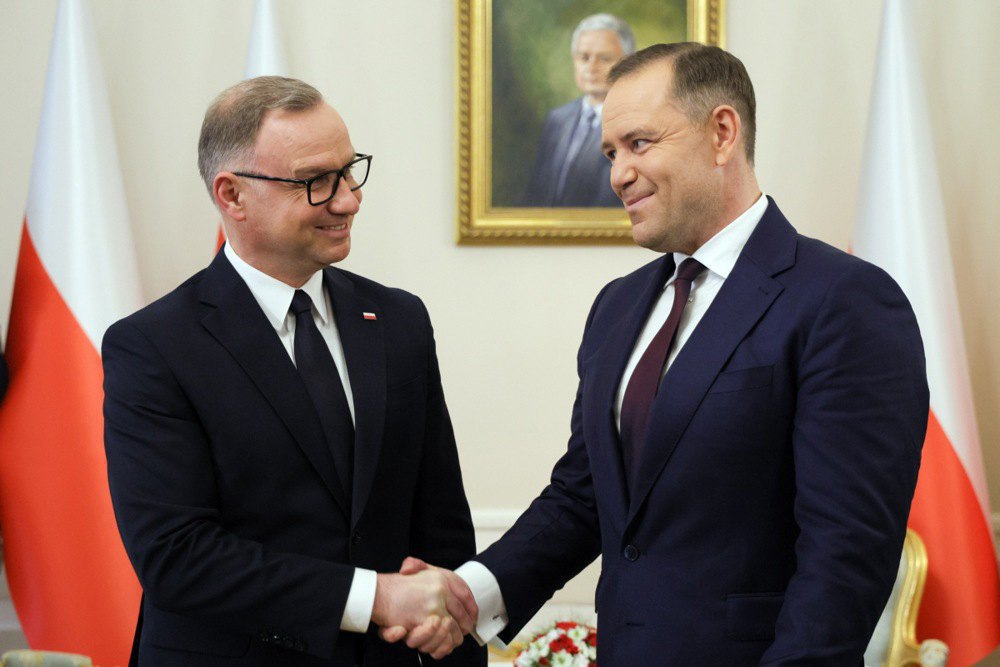
The new president is expected to intensify pressure on Kyiv regarding the exhumation issue. Although this is unlikely to provoke strong resistance from the Ukrainian authorities, it may lead to additional concessions concerning memorialisation. At the same time, Nawrocki – during his tenure at the Institute of National Remembrance – strongly opposed the investigation of Polish crimes against Ukrainians during the Second World War. Such instrumental use of history, particularly amid a potentially contentious domestic political climate in Poland, will likely sour the atmosphere of bilateral relations between Kyiv and Warsaw.
Moreover, it is essential to recognise that difficulties in Ukrainian–Polish relations may extend beyond the historical sphere into the economic domain. Warsaw harbours concerns about the economic repercussions of Ukraine’s accession to the EU single market, particularly the potential loss of EU subsidies – some of which may be diverted to support Ukraine’s reconstruction and integration. These pragmatic economic considerations now pose a significant constraint on Poland’s support for Ukraine’s EU aspirations.
Indeed, it is this economic factor – rather than historical grievances such as the Volyn tragedy – that is likely to exert a more lasting influence on Ukraine’s path to EU and NATO membership. Poland’s hesitance will be shaped more by concerns over competition for agricultural subsidies and market access than by unresolved historical tensions. Nawrocki’s statement about sending “Polish businessmen” to Ukraine after the war may be interpreted as a signal that lengthy negotiations in the economic domain are anticipated.
Despite Nawrocki’s tough rhetoric, it is important to stress that, under current scenarios, his election does not necessarily imply a fundamental shift in Poland’s policy of military support for Ukraine. There exists a degree of bipartisan consensus in Poland on this matter, and Prime Minister Donald Tusk – who remains in office – is unlikely to deviate from this established course. Nevertheless, even if military aid is maintained, political dialogue and Ukraine’s Euro–Atlantic integration prospects may become significantly more complicated, given Nawrocki’s declared stance on blocking Ukraine’s NATO accession.
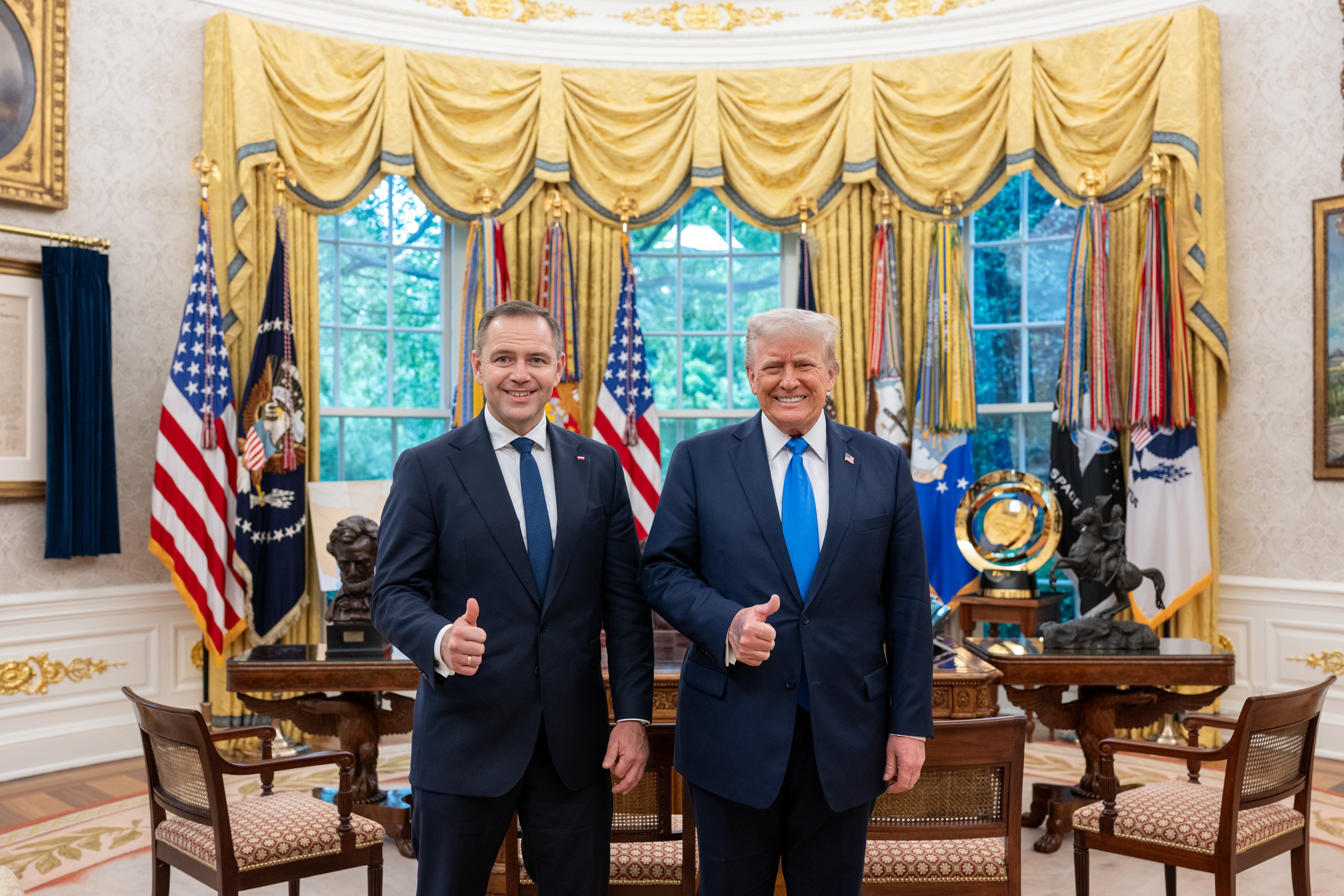
The situation is further entangled by the international context, particularly Nawrocki’s backing from right-wing political circles in both the United States and Europe, who perceive his victory as part of a broader ideological shift. Notably, he received pre-election attention from Donald Trump – who hosted him at the White House – and Christie Noem, the US Secretary of Homeland Security, who openly campaigned on his behalf. These developments point to attempts to construct a kind of transatlantic, right-wing, Eurosceptic bloc. While Nawrocki criticised the suspension of US military aid to Ukraine, he also blamed the incident on President Zelenskyy’s alleged “ingratitude” and implied that Ukrainians, more broadly, had not shown sufficient appreciation to Poland for its support.
Poland’s relationship with the European Union is likewise expected to deteriorate, as Law and Justice – along with the president it supports – will almost certainly continue to clash with Brussels over contentious issues such as abortion, freedom of expression, LGBT rights, migration, and the supremacy of EU law. Nawrocki has also declared his intention to revive the question of reparations from Germany for wartime losses, a move likely to provoke further diplomatic strain. In the medium term, such confrontational behaviour may create an opportunity for Ukraine to position itself as a more reliable and constructive partner to Brussels, potentially attracting additional EU investments and collaborative projects.
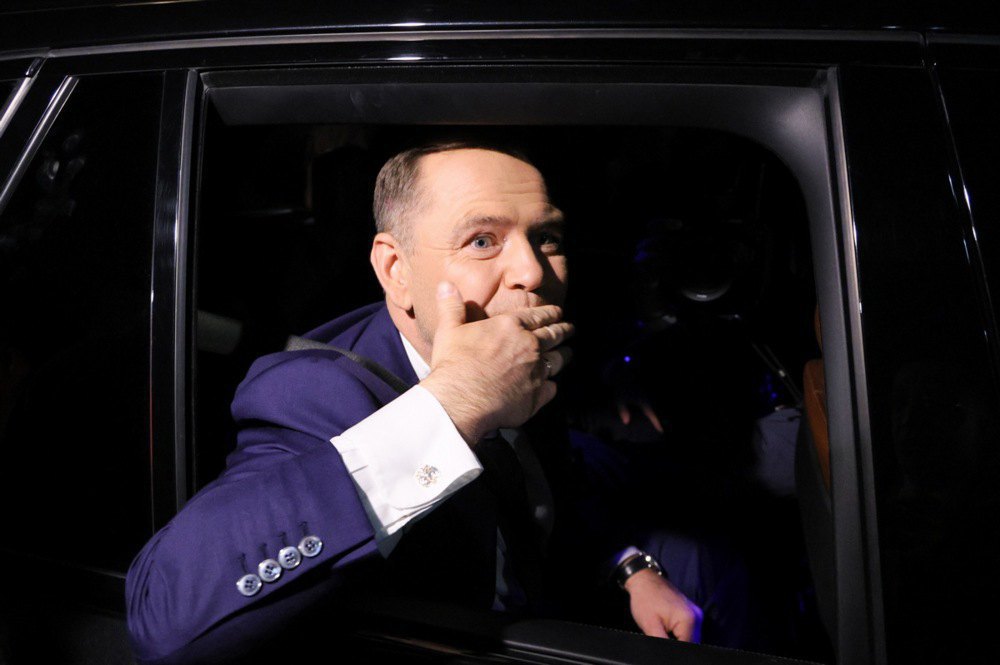
For Ukraine, the present challenge lies in adopting a flexible and pragmatic approach to relations with Poland – one that shifts the focus away from historical disputes and towards mutually beneficial cooperation in key strategic sectors, including the economy, defence industry, and energy. Karol Nawrocki’s victory is not, in itself, a catastrophe – but it heralds a complex and uncertain phase in bilateral relations. He should not be immediately equated with more inflammatory European leaders, but his rhetoric and policy commitments will demand a high level of diplomatic finesse from Kyiv.
In the coming months and years, Ukraine must actively seek common ground, mitigate risks, and capitalise on emerging opportunities – all while keeping in mind the deep polarisation of Polish society and the centrality of economic self-interest in Warsaw’s long-term foreign policy orientation.








